Find Help
More Items From Ergsy search
-

Delirium
Relevance: 100%
-
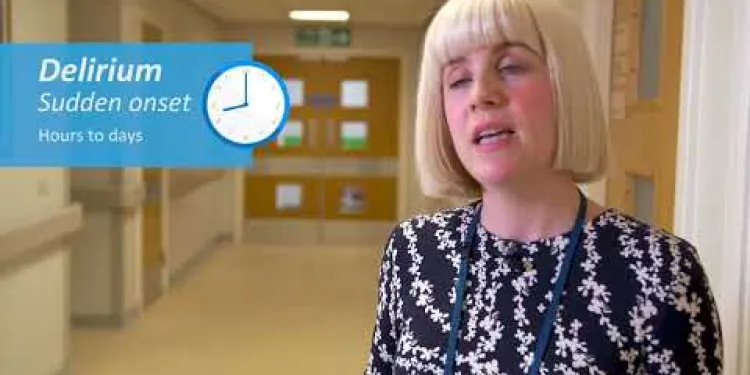
What is Delirium
Relevance: 95%
-

What is delirium
Relevance: 94%
-
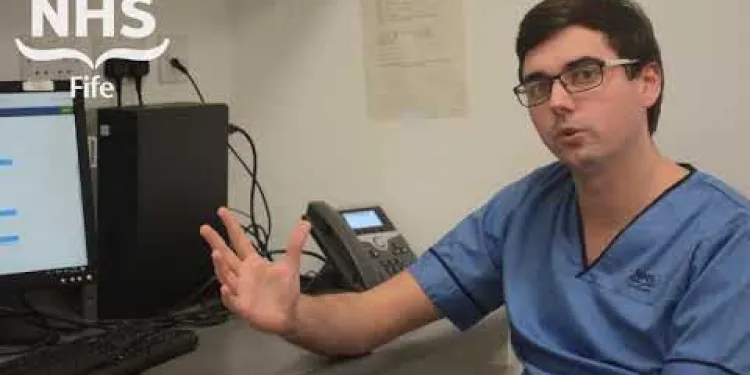
The Delirium Question on Patientrack
Relevance: 91%
-
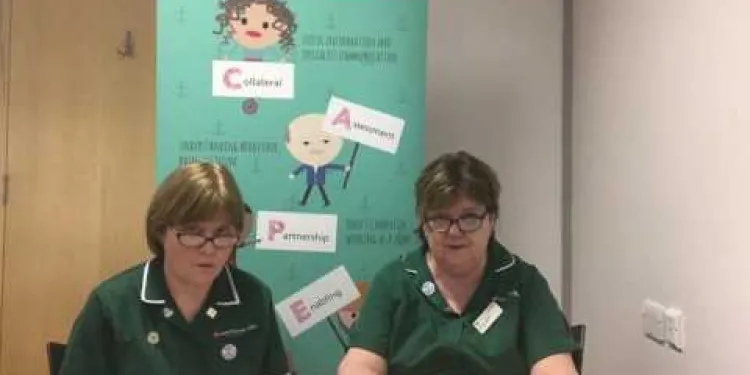
How do you spot delirium
Relevance: 87%
-
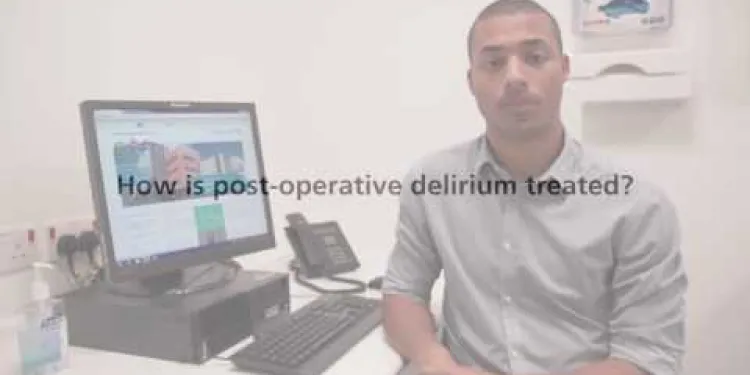
Experiencing delirium after surgery
Relevance: 87%
-
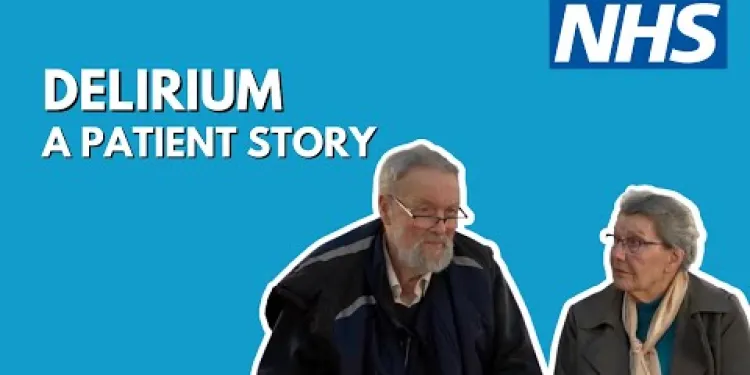
Delirium: A Patient Story at Leicester's Hospitals
Relevance: 83%
-

How is ketamine used in veterinary medicine?
Relevance: 13%
-

Can binge drinking lead to addiction?
Relevance: 6%
-

How does binge drinking affect mental health?
Relevance: 5%
What is Delirium?
Understanding Delirium
Delirium is a serious disturbance in mental abilities that results in confused thinking and reduced awareness of the environment. It is an acute, fluctuating, and often reversible condition that comes on quickly, usually within hours or days. Delirium can be distressing for both the person experiencing it and their loved ones, and it often signals an underlying medical issue that needs urgent attention.Causes and Risk Factors
Numerous factors can lead to delirium. Common causes include severe illnesses, infections, surgery, medications, substance abuse, or withdrawal. Older adults, especially those with pre-existing cognitive impairments such as dementia, are at a higher risk of developing delirium. Other contributing factors may include dehydration, electrolyte imbalances, sleep deprivation, and severe pain.Signs and Symptoms
The symptoms of delirium can vary but often include sudden changes in attention and alertness, disorganized thinking, and perceptual disturbances such as hallucinations or delusions. Individuals may experience rapid mood swings, from agitation to lethargy. Symptoms tend to fluctuate in severity, sometimes improving during the day and worsening at night, a phenomenon known as "sundowning."Diagnosis and Treatment
Diagnosing delirium involves a comprehensive evaluation, including medical history, physical exams, and cognitive assessments. Clinicians may use tools like the Confusion Assessment Method (CAM) to aid in diagnosis. Treatment focuses on addressing the underlying cause, providing supportive care, and ensuring a safe environment. Medications may be used to manage severe agitation or psychotic symptoms, but they are typically a last resort.Prevention and Management
Preventive measures are crucial for individuals at high risk of delirium. These may include ensuring proper hydration, proper pain management, minimizing the use of certain medications, and maintaining a consistent sleep-wake cycle. Families and caregivers play a pivotal role in managing and preventing delirium by providing a familiar environment, encouraging regular orientation, and staying vigilant for early signs and symptoms. Delirium is a medical emergency that warrants prompt attention to prevent complications and improve outcomes. Recognizing the signs and understanding the risk factors can lead to timely intervention and better management of this condition.What is Delirium?
Understanding Delirium
Delirium is when a person suddenly becomes very confused and cannot think clearly. It happens quickly, often in just a few hours or days. A person with delirium might not know where they are or what is happening around them. This can be very upsetting for the person and their family. Delirium usually means there is another health problem that needs to be fixed right away.Causes and Risk Factors
Many things can make someone have delirium. Some common reasons are being very sick, having an infection, or taking certain medicines. Sometimes, stopping alcohol or drugs can cause delirium. Older people, especially those with memory problems like dementia, can get delirium more easily. Not drinking enough water, having an imbalance of salts in the body, not sleeping well, or having a lot of pain can also lead to delirium.Signs and Symptoms
There are different signs of delirium. A person might suddenly not pay attention or seem sleepy. Their thoughts can be mixed up, and they might see or hear things that are not there. Someone with delirium can have big mood changes, like going from being very tense to very sleepy. These symptoms can change in how strong they are during the day, often getting worse at night.Diagnosis and Treatment
To know if someone has delirium, doctors will ask questions and do tests to check health and memory. They might use special tools called "Confusion Assessment Method (CAM)" to help. Treatment means fixing what is causing the delirium, like giving fluid if someone is dehydrated. Keeping the person safe and calm is important. Sometimes doctors give medicine if the person is very upset or confused, but only if needed.Prevention and Management
There are ways to stop delirium before it starts. Drinking enough water, managing pain well, and making sure someone gets enough sleep can help. It's also important not to use too many medicines unnecessarily. Families and caregivers can help by creating a comforting and familiar space. It helps to remind the person where they are and what time of day it is. Watching for early signs can help prevent delirium. Delirium is a serious problem and needs quick care to stop it from getting worse. Knowing what to look for and understanding what can cause delirium can help take care of the person before it becomes a bigger problem.Frequently Asked Questions
What is delirium?
Delirium is a serious disturbance in mental abilities that results in confused thinking and reduced awareness of the environment. It can be caused by a variety of factors, including illness, medications, and substance abuse.
What are the main symptoms of delirium?
The main symptoms include sudden confusion, difficulty focusing, changes in alertness, hallucinations, disturbed sleep patterns, and mood swings.
Who is at risk of developing delirium?
Older adults, especially those with dementia, are particularly at risk. Other risk factors include severe illness, surgery, hospitalisation, and the use of certain medications.
How is delirium diagnosed?
Diagnosis is typically made based on medical history, a physical examination, mental status exams, and sometimes additional tests to identify the underlying cause.
Can delirium be treated?
Yes, treatment focuses on addressing the underlying cause, providing supportive care, and managing symptoms through medications, hydration, nutrition, and ensuring a calm and safe environment.
What causes delirium?
Causes can include infections, dehydration, medications, surgery, substance withdrawal, metabolic imbalances, and severe pain or stress.
Can delirium be prevented?
Preventive measures include managing risk factors, ensuring proper hydration and nutrition, minimising the use of potentially harmful medications, and maintaining a calm and familiar environment for at-risk individuals.
How long does delirium last?
The duration can vary widely. Acute delirium may resolve in a few days, but some cases can last weeks or even months, especially if the underlying cause is not promptly or effectively treated.
Is delirium the same as dementia?
No, delirium is a sudden and often reversible condition, while dementia is a gradual and generally irreversible decline in mental function.
What should I do if I suspect someone has delirium?
Seek medical attention immediately. Early diagnosis and treatment are crucial for the best outcomes. Ensure the person is in a safe environment while waiting for medical help.
Can delirium occur in younger people?
Yes, while it is more common in older adults, delirium can affect people of any age, especially those who are severely ill or have undergone major surgery.
Does delirium cause permanent damage?
In many cases, delirium is reversible and does not cause permanent damage if treated promptly. However, prolonged or severe delirium can sometimes lead to lasting cognitive impairment.
Are there different types of delirium?
Yes, delirium can be classified as hyperactive, hypoactive, or mixed, based on the level of activity and alertness. Hyperactive delirium includes heightened arousal and restlessness, hypoactive includes reduced activity and lethargy, and mixed includes signs of both.
What role do family members play in managing delirium?
Family members can provide important support by helping keep the environment calm and familiar, ensuring proper hydration and nutrition, and communicating with healthcare providers about the patient's medical history and changes in condition.
Where can I find more information about delirium in the UK?
Reliable sources of information include the NHS website, healthcare professionals, and organisations such as Age UK or the Alzheimer's Society, which provide resources and support for those affected by delirium.
What is delirium?
Delirium is when someone gets very confused. It is a change in how they think. It can happen quickly.
Here is how to help someone with delirium:
- Talk to them calmly.
- Make sure they are in a safe place.
- Keep the room quiet and not too bright.
- Use short and simple sentences.
If you need more help, talk to a doctor or nurse.
Delirium is a serious problem that makes people very confused. They might not understand what is happening around them. Delirium can happen because someone is sick, taking certain medicines, or using drugs.
For help, it's good to talk to a doctor or nurse. They can explain more and help the person feel better. Reading aloud or using pictures can also make it easier to understand.
What are the main signs of delirium?
The main signs are: suddenly feeling confused, hard time concentrating, changes in being awake, seeing things that aren't there, trouble sleeping, and mood changes.
Here are some things that can help:
- Use a calm voice and clear words.
- Keep lights bright in the daytime.
- Keep a regular bedtime and wake-up time.
- Use reminders like notes or alarms.
- Ask someone you trust for help if you need it.
Who can get delirium?
Some people can get confused and mixed up. This is called delirium. Here are some people who might get it:
- Older adults.
- People who are very sick.
- People who take lots of different medicines.
If you want to know more or need help, ask a doctor or nurse. They can explain and help you understand better.
Older people, especially those with memory problems, need extra care. They are more at risk. Other risks can be getting very sick, having an operation, staying in the hospital, and taking some medicines.
How do doctors know if someone has delirium?
Doctors find out what is wrong by looking at your past health, checking your body, and seeing how you think and feel. Sometimes, they do extra tests to find out more.
Can delirium be treated?
Yes, delirium can be treated. Here is some simple advice:
- See a doctor: A doctor can help. They can find out why someone has delirium.
- Medicine: Sometimes, medicine can help calm the person.
- Comfort: Make sure the person feels safe and comfortable.
- Rest: Help the person rest in a quiet place.
Using these steps can make things better. If you are worried, always talk to a doctor.
Tip: Use pictures or symbols to help understand big ideas.
Yes, treatment helps make you feel better. Doctors try to fix what is making you sick. They also give you medicine, water, and food to help you get well. It is important to rest in a quiet and safe place.
What makes people confused?
There are many things that can cause this. It can happen if you have an infection, are not drinking enough water, take certain medicines, have an operation, stop using some drugs or alcohol, have problems with your body's chemicals, or feel a lot of pain or stress.
If you find it hard to understand, you can use tools that read out loud or explain words. Using pictures can also help you understand better.
Can we stop delirium?
Delirium is when someone gets very confused. It can happen if someone is sick or tired.
Here are some simple ways to help stop it:
- Make sure the person drinks enough water.
- Help them get enough sleep.
- Keep their room quiet and calm.
- Help them remember where they are, like using a calendar or clock.
Ask a doctor or nurse if you need help.
To stay healthy, you can do a few things:
- Look after things that might make you sick.
- Drink lots of water and eat good food.
- Don't take too many medicines that can be bad for you.
- Keep your home and surroundings calm and familiar, especially if someone is in danger of getting sick.
These steps can help keep you well. You can also use picture charts or ask a helper if needed.
How long does delirium last?
Delirium is when someone gets very confused. It can last for a short time or a bit longer. Sometimes, it goes away in a few days. Other times, it can take weeks to get better.
If someone is confused for a long time, it is important to see a doctor. Doctors can help and give medicine if needed.
Using a calendar or a clock can help keep track of time. Talking to friends and family can also help the person feel better.
Acute delirium means sudden confusion. It can get better in a few days. Sometimes, it might last for weeks or months, especially if the cause is not treated quickly.
Are delirium and dementia the same?
No, they are not the same. Delirium is a sudden change in the way a person thinks and acts. It can happen quickly, in just a few hours or days. The person might be confused or not know where they are. Delirium can be caused by things like being sick or taking certain medicines. It usually gets better when the cause is fixed.
Dementia is different. It is a slow change that happens over time. It makes it hard for a person to remember things or think clearly. Dementia does not get better, but some treatments can help.
If someone you know is having trouble thinking clearly, talk to a doctor who can help find out what is wrong.
Using a calendar or setting reminders can help with memory. Asking a trusted person for help is a good idea.
No, delirium is different from dementia. Delirium happens quickly and can get better. Dementia happens slowly and usually does not get better.
What should I do if I think someone has delirium?
If you think someone is confused or acting strange, they might have delirium.
Here are some steps to help:
- Stay calm and talk to the person in a gentle voice.
- Make sure they are safe and not in danger.
- Tell an adult or a doctor about what you see.
- Be with them so they do not feel alone.
You can use pictures or simple words to explain things.
Remember, it is important to get help from a doctor.
Get help from a doctor right away. Finding out what is wrong and starting treatment quickly is very important. Make sure the person is in a safe place while you wait for the doctor to come.
Can young people get confused and mixed up in their mind?
Yes, delirium can happen to anyone, not just older people. It can affect anyone who is very sick or who has had big surgery.
Can delirium cause lasting harm?
Delirium can often get better if treated quickly. It usually does not cause permanent harm. But if delirium lasts a long time or is very bad, it can sometimes hurt the brain for a long time.
Are there different kinds of delirium?
Yes, delirium can be put into three groups. These groups are hyperactive, hypoactive, and mixed. Hyperactive means feeling very awake and restless. Hypoactive means feeling very sleepy and slow. Mixed means having both signs.
For help reading, try using tools like audiobooks or text-to-speech programs. These can make reading easier and more fun!
How can family help when someone is confused (delirium)?
Family can help a lot when a person is mixed up and not thinking clearly (this is called delirium). Family members can stay close, talk to the person, and help them feel safe. They can remind the person of where they are and what is happening. It is good to bring items from home, like photos, to help the person feel better. Family can also help the doctors and nurses by telling them what the person likes and dislikes.
Here are some helpful tips for families:
- Stay calm and kind.
- Speak slowly and clearly.
- Use simple words.
- Help the person feel safe and loved.
If you need more help, you can ask a nurse or doctor. They can show you more ways to help.
Family can help a lot. They can keep things calm and familiar. Make sure the person drinks enough water and eats well. Talk to doctors about how the person is doing and any changes.
Where can I learn more about delirium in the UK?
If you want to know more about delirium, here are some ways to learn:
- Visit a library: Libraries have books that can help you learn about delirium.
- Ask a doctor: Doctors can answer your questions and tell you more about delirium.
- Look online: There are websites that have information about delirium. A good place to start is the NHS website.
- Use audio books or videos: Sometimes listening or watching can help you understand better.
These are ways you can find out more to help you understand delirium better.
Good places to get information are the NHS website, doctors and nurses, and groups like Age UK or the Alzheimer's Society. They can help people who are dealing with delirium.
Useful Links
This website offers general information and is not a substitute for professional advice.
Always seek guidance from qualified professionals.
If you have any medical concerns or need urgent help, contact a healthcare professional or emergency services immediately.
Some of this content was generated with AI assistance. We’ve done our best to keep it accurate, helpful, and human-friendly.
- Ergsy carfully checks the information in the videos we provide here.
- Videos shown by Youtube after a video has completed, have NOT been reviewed by ERGSY.
- To view, click the arrow in centre of video.
- Most of the videos you find here will have subtitles and/or closed captions available.
- You may need to turn these on, and choose your preferred language.
- Go to the video you'd like to watch.
- If closed captions (CC) are available, settings will be visible on the bottom right of the video player.
- To turn on Captions, click settings .
- To turn off Captions, click settings again.
More Items From Ergsy search
-

Delirium
Relevance: 100%
-

What is Delirium
Relevance: 95%
-

What is delirium
Relevance: 94%
-

The Delirium Question on Patientrack
Relevance: 91%
-

How do you spot delirium
Relevance: 87%
-

Experiencing delirium after surgery
Relevance: 87%
-

Delirium: A Patient Story at Leicester's Hospitals
Relevance: 83%
-

How is ketamine used in veterinary medicine?
Relevance: 13%
-

Can binge drinking lead to addiction?
Relevance: 6%
-

How does binge drinking affect mental health?
Relevance: 5%

